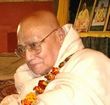According to the Indian Almanac, every three years, an extra month, Purushottama, is included in the year in order to harmonise the lunar month with the solar month. It is technically called an 'intercalary month'. According to the Smarta school of thought this month is unholy, as they refer to it as being 'tarnished'. Prescribing various holy functions for all months of the year, they left this additional 'unholy' month out of their plans.
However, the Vaishnava school of thought objects to this, arguing that not a single moment is to be spent without the worship of the Supreme Lord during Purushottama. The god who is associated with the holiest of all months is Sri Purushottama, who is none other than Sri Krishna, since His favourite month is this.
In the Gita, Krishna says: "I am celebrated both in the world and in the Vedas as that Supreme person: Purushottama" (15.18). The Lord of the Universe, Jagannath, is also known as Purushottama. His abode, Puri, is known as Purushottama-Dhama.
The best spiritual practice during the month, according to the Srimad Bhagavatam, is to hear the glories of the Supreme Lord, the Hari Katha. This time the month of Purushottama has come in the Shravana season. Krishna said: "This additional month is like Me. I cannot be comprehended by the conditioned souls of this world — I am Supreme, and so I am designated as Purushottama."
Everything in our spiritual culture has got consciousness (in the background) — the Sun is presided over by the Sun-god, the moon is presided over by the Moon-god and Ganga Devi is the presiding deity of the river Ganga. Similarly, there is a presiding deity for the Purushottama month.
Depressed because of her seemingly useless existence, this deity approached Lord Narayana and asked Him: "What offence did I commit? Why is that no one performs any pious activities during my time?" Narayana directed her to Krishna who said: "I am Purushottama and I cannot be comprehended by finite beings of this world... as I am beyond their means of comprehension."
Krishna explained: "This additional month is like Me. You (Purushottama) are Me. You are the holiest month. If anybody observes vrata (vow of austerity) during your time, he can get everything. If the austerities are observed according to scriptural injunctions, it is even more auspicious than Kartik vrata, the holiest of months. So you will be known by the name Purushottama."
During the holy month of Purushottama, certain spiritual practices are observed by devotees: Recitation of Sri Jagannathastakam in the mornings, of Chauragraganya Purusashtakam in the afternoons, performance of japam or chanting as instructed by Kaundinya Muni, Deep daana or ghee-lamp offerings in the evenings at the Vishnu, Krishna or Ram mandir, and last but not the least, reading the Brahmastava, 40 slokas in Sanskrit, from the Bhagavatam, chapter 14, Canto 10. This spiritual technique, when performed with devotion in Purushottama, can bestow manifold results on the sadhak. Observance of Purushottama vrata brings eternal joy to the soul.
[The author is president, World Vaishnav Association, All India Sree Chaitanya Gaudiya Math and founder, Global Organisation of Krishnachaitanya's Universal Love, GOKUL. Compiled from the author's discourses by Rajendra Mishra, GOKUL. e-mail: gokul_india@sancharnet.in, website: www.gokul.org.uk]
![[BVML Home Page]](../grfx/bml_logo.gif)
